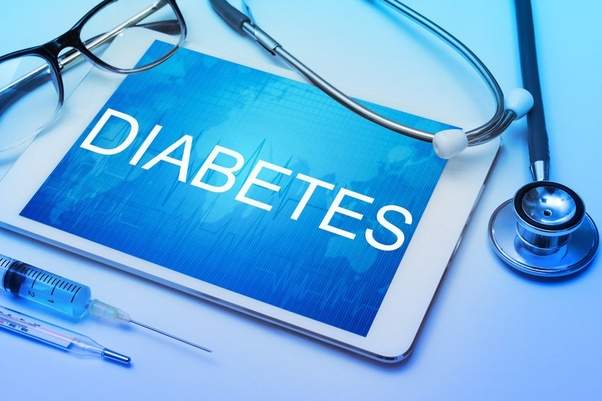- Phone: 011-41680215
- Mon-Fri (10am - 8pm)
- info@biswasheartandmindclinic.com

In the field of Diabetology, Biswas Heart and Mind clinic( BHMC) provides all patients with affordable and reliable medical care. Our diabetologist, Dr Anirban Biswas always conducts a comprehensive and thorough medical interview with patients and also educates them on diseases such as diabetes and metabolic disorders. Patients suffering from such problems will find professional and comprehensive services in diabetology. Our diabetes doctor also provides the necessary support and care to all people who come for diabetes treatment and cure.
Our diabetologist in Delhi provides professional specialist consultations to diagnose your illness and appropriately start the indicated treatment. Our doctor provides helpful advice in the form of diabetes diet charts and blood sugar monitoring charts, due to which the patient receives appropriate care when diagnosing and treating diseases such as type 2 & type 1 diabetes.
We also care for patients with various types of diabetes, including LADA & gestational diabetes. In our Biswas Heart and Mind clinic (BHMC), it is also possible to diagnose the complications of diabetes. Our south Delhi diabetologist also provides free tests and medical care to people suffering from the problem of diabetic foot, neuropathy, retinopathy, nephropathy, and sexual disorders among others.
Diabetes is an increasingly common disease. Both adults and children are affected by this disease. Therefore, nowadays it is extremely important to know about this issue and to diagnose it quickly. In this way, we can plan optimal treatment, which improves the quality and comfort of the patient’s life. Our diabetes doctor is a guarantee of professional care, often controlling your blood sugars in the first visit only, so you can boldly make an appointment.
We provide our patients with professional education and comprehensive treatment for diabetes, taking care of every problem. Our Biswas Heart and Mind clinic (BHMC) employs only the best specialist in diabetes, who have over 19 years of experience in their specialization and caters to patients from south Delhi like Anand Lok, Anand Niketan, Chittranjan Park (Cr Park), Chirag Enclave, Defence Colony, East of Kailash, Greater Kailash, Gulmohar Park, Hemkunt Colony, Hauz Khas, Jangpura Extension, Jor Bagh, Kailash Colony, Kailash Hills, Kalkaji, Govindpuri, Saket, Lajpat Nagar, Maharani Bagh, Malviya Nagar, Sarita Vihar, New Friends Colony, Nizamuddin, Navjivan Vihar, Panchsheel, Pamposh Enclave, Safdarjung Enclave, Sarvapriya Vihar, Uday Park, and Vasant Vihar. He is distinguished by outstanding medical achievements. The staff of our clinic is constantly trained and developed so that patients can always count on the best quality of medical services. We encourage you to contact our clinic at 9313315383 and book convenient dates of visits.
DIABETES
WHAT IS DIABETES?
Diabetes is a lifelong condition that causes a person’s blood glucose (sugar) levels to become too high.
The amount of glucose in the blood is controlled by the hormone insulin that is produced by the pancreas. Insulin moves glucose out of the blood and into cells where it is broken down to produce an essential source of energy that fuels our bodies.
If you have diabetes the body is unable to move glucose into your cells.
WHAT ARE THE DIFFERENT TYPES?
There are two main types of diabetes:
Type 1 diabetes: The body’s immune system attacks and destroys the insulin-producing cells in the pancreas so the body doesn’t make any insulin (IDDM). LESS COMMON
Type 2 diabetes: The body doesn’t produce enough insulin or the body’s cells don’t react to insulin this is known as insulin resistance( NIDDM). MORE COMMON
There are also some rarer types of diabetes such as gestational diabetes mellitus (GDM) in pregnancy & LADA (Latent Autoimmune Diabetes in Adults).
WHAT IS PRE-DIABETES?
In India, around 90% of all adults with diabetes have type 2 and one in 10 men now has diabetes. However, due to the rise in obesity, this figure is expected to increase. In addition, many people have pre-diabetes (1 in 5 ), this is where their fasting blood glucose levels is above the normal range (80 –110 mg%) increasing your risk of developing the condition.
WHAT SHOULD YOU DO?
If you have diabetes, it is important to eat healthily, take regular exercise, and carry out regular blood tests to ensure your blood glucose levels remain stable.
It is also important to have regular health check-ups and be aware of the likely long-term complications so that early detection and treatment is possible.
SYMPTOMS OF DIABETES
Feeling very thirsty
Frequent urination, particularly at night
Fatigue
Unexplained weight loss
Slow-healing cuts or wounds
Blurred vision
Frequent gum or skin infections and for women vaginal infections.
COMPLICATIONS OF DIABETES
Blood vessels can be damaged by the effects of high blood glucose levels and poorly controlled diabetes can cause or lead to:
Heart disease and stroke
Diabetic retinopathy; the blood vessels of the retina become damaged which can lead to sight loss
Kidney disease; if the small blood vessels in the kidneys become damaged and stop working as efficiently, this condition is often called diabetic nephropathy
Nerve damage, known as diabetic neuropathy, is when the small blood vessels that supply nerves can be disrupted, leading to problems with nerve function
Sexual problems; erectile dysfunction is very common for men suffering from diabetes and women may experience a variety of sexual difficulties, which can include arousal difficulties and pain during sex.
Foot problems; due to poor circulation and nerve damage, can mean that cuts and grazes go unnoticed and become infected. The poor blood supply means that infections are slow to heal and may become ulcerated.

